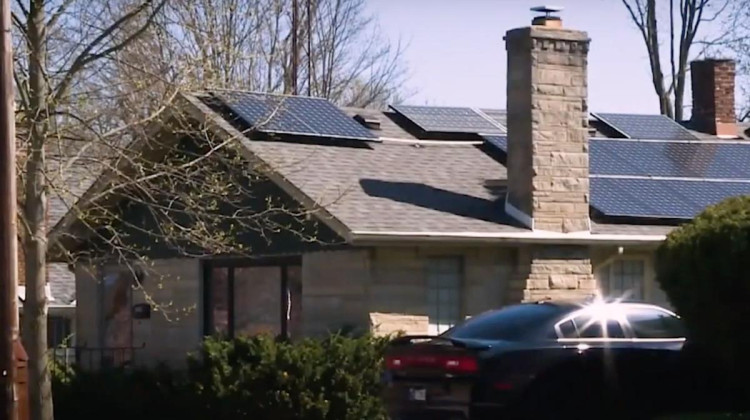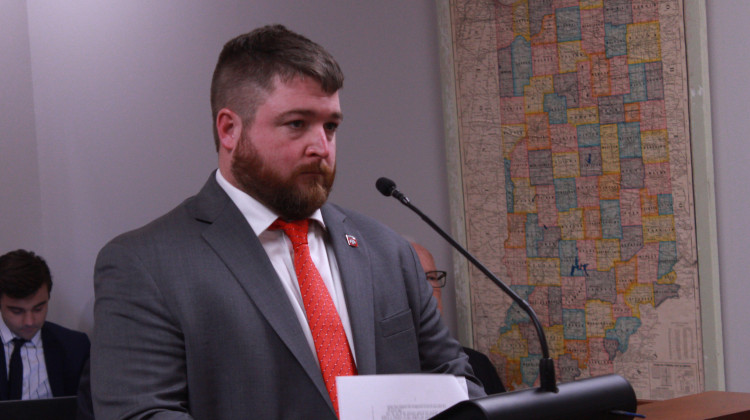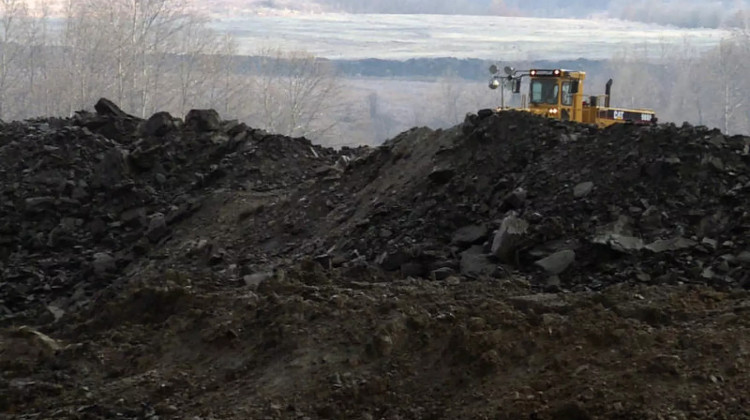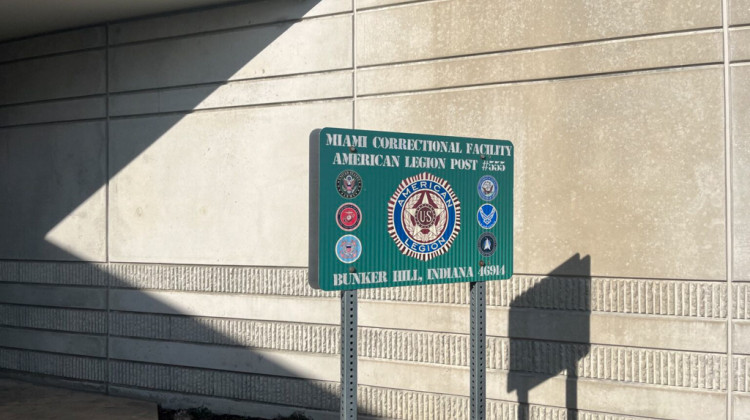
Due to a 2017 state law, Hoosiers who install solar panels now will already get fewer credits for the excess energy they deliver back to the grid compared to before the law was in place. Now solar advocates say the Indiana Supreme Court ruling will make solar even less affordable.
Rebecca Thiele/IPB NewsAn Indiana Supreme Court decision could have an impact on the cost of solar for Hoosiers across the state. The court ruled in favor of CenterPoint Energy on Wednesday.
The case involves what math utilities can use to pay solar customers for the excess energy they deliver to the grid. CenterPoint now subtracts the energy someone with solar panels uses from how much they produce almost in real-time, instead of monthly like it did before.
Last year, an appeals court said — because lawmakers didn’t mention this way of doing the math — CenterPoint should go back to calculating it monthly.
This week, the Indiana Supreme Court saw it differently. It said that lack of guidance from the legislature means utilities are free to calculate that excess energy in whatever time frame they want — as long as the Indiana Utility Regulatory Commission approves. It also said the lower court misunderstood how CenterPoint’s meters operate.
Jason Stephenson is with the utility’s regulatory legal group for Indiana and Ohio. He said CenterPoint is pleased with the ruling, but wants to be clear that it isn’t against renewables. The utility hopes to get more than 60 percent of its power from wind, solar and battery storage by 2025.
“What we wanted to accomplish here was not to harm a nascent industry, but was simply just to make sure we have fair and appropriate compensation going forwards for everyone," Stephenson said.
Laura Ann Arnold is the president of the Indiana Distributed Energy Alliance also known as Indiana DG. She said the decision will put Indiana consumers and the state solar industry at a “competitive disadvantage.”
“In this sustainable energy transition now sweeping the nation with the support of historic federal funds and tax credits. So it's just taking us in the wrong direction, in our view," Arnold said.
The Indiana Supreme Court decision will likely affect similar cases with four other Indiana utilities being debated in lower courts.
Join the conversation and sign up for the Indiana Two-Way. Text "Indiana" to 73224. Your comments and questions in response to our weekly text help us find the answers you need on statewide issues, including this series on climate change and solutions.
Arnold said if utilities are able to continue to use this math to calculate excess energy going forward, Indiana solar companies may have to make major changes in how they install panels.
She said it might make sense to have more separation between the energy coming from the utility and the energy that the customer produces. Some customers might even decide to go off the grid.
Arnold said to meet consumer needs, solar company may need to adjust the number of panels and the storage options for their customers.
“In other words, you want to match your energy consumption to the energy production of your solar system," Arnold said. "And that's going to require some major modifications as to how solar installers view this. It's not impossible, but it does make it more difficult. And it certainly will increase the length of time for a customer to achieve a greater return on their investment.”
Solar advocates aren’t sure if they’ll appeal the decision. Arnold said they might instead turn to the Indiana legislature.
Contact reporter Rebecca Thiele at rthiele@iu.edu or follow her on Twitter at @beckythiele.
9(MDAyMzk1MzA4MDE2MjY3OTY1MjM5ZDJjYQ000))
 DONATE
DONATE






 Support WFYI. We can't do it without you.
Support WFYI. We can't do it without you.